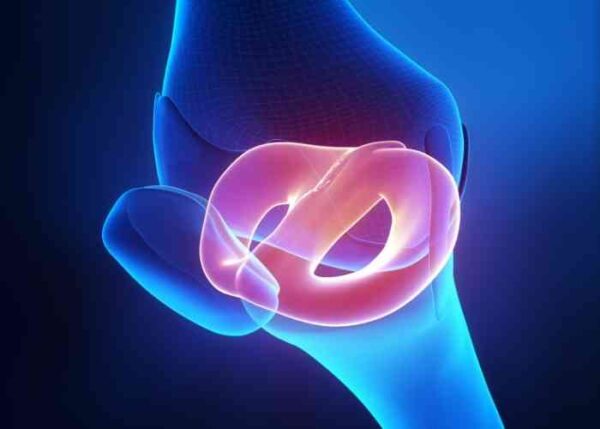Meniscus Transplantation Surgeon

Are you an athlete who participates in sports that involve running and jumping? If so, you may be at risk of tearing or damaging your meniscus. If the meniscus is unable to be repaired, you may need a meniscus transplantation. Meniscus transplantation surgeon, Doctor Riley J. Williams provides diagnosis as well as surgical treatment options for patients in Manhattan, Brooklyn, New York City and surrounding areas who have need a meniscus transplantation.
What is a meniscus transplantation?
A meniscus transplantation involves replacing a severely damaged or absent meniscus cartilage in the knee with donor meniscus. This type of procedure is best suited for individuals under the age of 50 who are not already suffering from knee arthritis. The goal of meniscus surgery is to provide affected patient significant pain relief. An individual may need a meniscal transplant if the meniscus has been severely damaged due to injury or if the cartilage has been removed during a prior meniscectomy. The meniscus is a natural cushion for the knee joint. As such, when meniscus is damaged, the knee articular cartilage may start to thin or wear, resulting in painful knee arthritis… Dr. Riley J. Williams, orthopedic knee specialist, serving Manhattan, Brooklyn, New York City, NY and surrounding areas, has extensive knowledge of knee meniscus and meniscus transplantation procedures. He can help patients in New York who need a meniscus transplant.

What is the knee meniscus?
The meniscus is crescent-shaped tough, rubbery cartilage structure that is located in the knee joint between the femur (thighbone) and the tibia (shinbone). Each knee has two menisci, one lateral (on the outside) and one medial (on the inside). These structures act as shock absorbers between the tibia and femur while during locomotion (walking, running, sports), and help stabilize the joint. Both the tibia and femur bones have articular cartilage, the slippery gristle-like substance on the end of the bones. Intact articular cartilage allows the bones to glide relatively to another in a smooth, painless manner Meniscus cartilage damage can result in a loss of articular cartilage. , Articular cartilage loss can cause an arthritic bone-on-bone condition; joint affected by arthritis are often inflamed and painful. The wear and tear arthritis a that follows damage to the meniscus is also known as osteoarthritis. The goal of a meniscus transplantation is to replace the knee meniscus before the articular cartilage is damaged.
How is a meniscus transplantation performed?
Donor (allograft) cartilage tissue is taken from a cadaver and sized to match the the patient. The process to ensure the donor tissue is a safe match for the patient is extensive. There is also strict criteria the patient must meet in order to be a good candidate for the transplant such as:
- Under 50 years old
- Physically active and not obese (normal body mass index)
- Little to no knee arthritis
- Persistent pain due to meniscal injury
- Most of the meniscus is missing or a torn meniscus that cannot be repaired
- Stable knee ligaments
- Normal lower extremity alignment
The surgery is done arthroscopically. Two small incisions are made in the knee and a small tube with a camera on the end called an arthroscope displays images of the meniscus on a monitor. Dr. Williams will use small surgical instruments to perform the transplant.
What are the risks of a meniscus transplantation?
The risks of meniscus transplant surgery are low. The most common concerns may be incomplete healing of the transplant, and re-operation for stiffness post-surgery. Rare risks include infection, persistent bleeding, or nerve/blood vessel injury.
How long does it take to recover after a meniscus transplant?
The first 4-6 weeks post-surgery will require a knee brace and crutches to stabilize the knee. This will allow the new tissue to heal and properly attach to the bone. After the early period of protected weight bearing, physical therapy will be required to regain flexibility, range of motion and strength. Most patients are able to walk freely without a brace by 6 weeks; gym-based exercises also can resume at this time point. Significant pain relief in the area of the transplant is expected by 6 weeks. Months 2-6 following surgery are dedicated to the development of functional muscle strength. A Return to full activities may take 6-12 months after surgery.
For additional resources on knee meniscus and meniscus transplantation or to have your knee pain evaluated, please contact the office of Dr. Riley J. Williams, orthopedic knee surgeon serving Manhattan, Brooklyn, New York City, NY and surrounding areas.
Locations
610 W 58th Street
New York, NY 10019
148 39th Street, 7th Floor
Brooklyn, NY 11232



